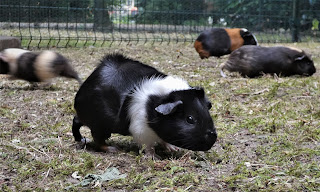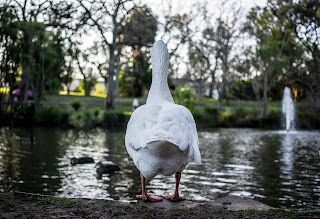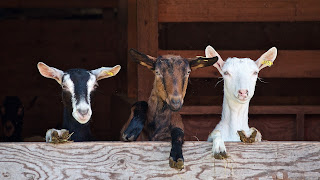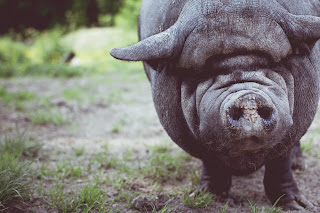3 Reasons Why Your Guinea Pig Is Scared Of You
TheRider'sReins
October 28, 2019
0
If you have ever owned guinea pigs, you will know that they can be very nervous and shy. Most pet owners will just work with the fear instead of curing it.
Here is how you can gain your guinea pig's trust.
1. You Intimidate Him
Think about even the size of your hands compared to your guinea pig. Reaching your hands into your guinea pig space is obviously to freak him out. As your pig is intimidated by you because of your size, you must act in a certain way. Start by gaining his trust. You can do this by hand-feeding his daily veg each day.
This should make him realise that your hands aren't a scary monster that's coming to get him 😂 At first, try to keep your hand as still as possible. When you think he is getting more confident, start moving about a bit more.
Eventually, you can start petting him. If he gets scared, start at the beginning again.
2. Your Not Practising Enough
To encourage your guinea pig to be confident and friendly, you need to spend time with him every day. Multiple times a day actually. If you don't have the time to spend with your pet each day, you shouldn't have one.
Like any other pet, guinea pigs need lots of attention. In fact, they love cuddles like any other pet IF you treat them correctly.
Apart from working on his confidence while hand-feeding veg, you can take him for cuddles while you watch TV, sitting with him while he explores a new room or give him a treat to eat on your bed. These things will help you to give him the confidence around you to become friendly.
Of course, at this point don't pick the guinea pig up if he runs away from you. Instead, let him come out of his enclosure by himself. A lot of times, he won't care as much about being picked up if he's in a large space.
3. You Pick Him Up Every time
Just like many other prey animals, guinea pigs simply don't like being picked up or carried. Being carried around means death in the wild. So, obviously avoiding that is best for keeping trust.
I personally use a pet carrier (with a treat inside) to move my guinea pigs around. when you do need to pick him up (for emergencies, health checks or vet appointments) more slowly and make it as quick as possible.
*Disclaimer*
I am not any type of animal expert but instead only an animal lover who wants to share her tips. Please consult relevant animal specialists and do not only take my advice.
The Rider's Pets




































